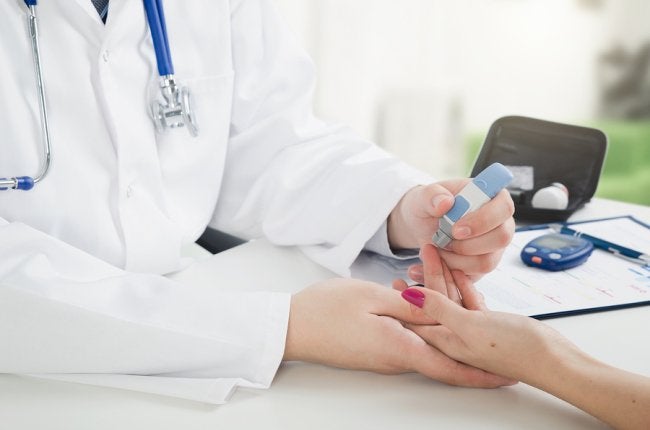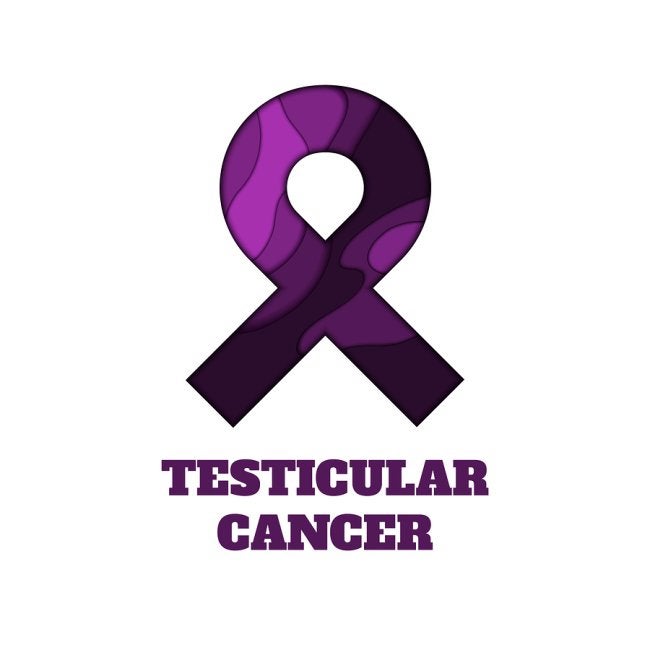-
Treating Recurring UTIs
Urinary tract infections, or UTIs, can happen to anyone, but when they recur, it’s important to see a urologist to pinpoint the cause and find the right UTI treatment. This video explains more about recurrent UTIs in women, who is most likely to get them, and what can be done to treat them.
Recurring UTIs may occur when the initial treatment was not effective. Typically, over-the-counter medications will not clear up an infection completely. In some cases, bladder stones can contribute to recurring UTIs as well.
Urology Associates, P.C. can help you get the right UTI treatment to put recurrent infections behind you. Make an appointment with a urologist in Nashville by calling (855) 901-1338.
-
Exploring the Link Between Diabetes and Kidney Stones

It is well-established that diabetes can increase the risk of kidney failure, particularly when it is poorly controlled. However, does the disease also increase the risk of kidney stones ? Here is what you need to know about the connection between diabetes and kidney stones and when you should see a urologist about your symptoms.
What are kidney stones?
Kidney stones are hard, stone-like formations of excessive calcium oxalate, struvite, uric acid, or cysteine. These substances can band together inside of your kidneys and form stones that range in size from minute to large and obstructive. When stones form, they eventually must pass out of your body through your urinary tract. Small stones can pass through your system with few, if any, symptoms. Large stones can be excruciatingly painful to pass and may get stuck in your urinary tract, where they can block the release of urine and trigger infections.
How does diabetes increase the risk of kidney stones?
Diabetes can increase the acidity of your urine. If your blood glucose levels are high, the acidity in your blood increases, which in turn causes the acid levels in your urine to increase. Acidic urine increases the risk of kidney stones. Following your diabetes care plan closely in order to control blood glucose and drinking plenty of water every day can help to reduce the risk.
When should you see a urologist for kidney stones?
See a urologist as soon as possible if you have symptoms of a kidney stone. These include nausea, vomiting, back pain, abdominal pain, and blood in the urine. If your stone is small, you may be able to pass it by increasing your water intake and using over-the-counter pain medicines. For large stones, your urologist may recommend procedures to break up the stone or surgical removal.
Urology Associates, P.C. provides treatment for a wide range of conditions, from UITs to kidney stones and bladder cancer. If you think you could have a kidney stone in Nashville, make an appointment by calling (855) 901-1338.
-
Spotlight on the Symptoms of Testicular Cancer
 Testicular cancer is relatively uncommon, so men are often unaware of the symptoms. Unlike many kinds of cancer, about half of all cases of testicular cancer occur in young men between the ages of 20 and 34, though it can affect men at any stage in their lives, including in infancy. Typically, testicular cancer can be cured in its early stages, so it’s important to see a urologist if you think you could be experiencing any of these testicular cancer symptoms.
Testicular cancer is relatively uncommon, so men are often unaware of the symptoms. Unlike many kinds of cancer, about half of all cases of testicular cancer occur in young men between the ages of 20 and 34, though it can affect men at any stage in their lives, including in infancy. Typically, testicular cancer can be cured in its early stages, so it’s important to see a urologist if you think you could be experiencing any of these testicular cancer symptoms. Painless Lump
The most common indicator of testicular cancer is the appearance of a painless lump on a testicle. Occasionally, the lump may become tender or painful, but in the vast majority of cases, it is not. When you do experience pain with testicular cancer, it is more likely to be in the lower belly or in the entire scrotum rather than just at the site of the lump. It is often described as a deep ache or a feeling of heaviness.
Testicular Swelling
Some men with testicular cancer notice that one of their testicles has become larger or swollen. Although it’s natural for men to have testicles that are different sizes, with testicular cancer, an existing difference in size may become more pronounced. This can happen with or without the presence of a lump.
Breast Growth
Testicular cancer can lead to a hormonal imbalance that causes breast growth or tenderness in men. These hormonal changes can also result in a loss of sex drive. Pre-pubescent boys who develop testicular cancer may experience more pronounced hormonal symptoms, including the sudden deepening of the voice or facial hair growth.
The symptoms of testicular cancer can also be associated with a number of other conditions, so let a urologist at Urology Associates, P.C. make an accurate diagnosis, so you can get the appropriate treatment. For a diagnosis and testicular cancer treatment in Nashville, call (855) 901-1338.
Recent Posts
categories
- Uncategorized
- Bladder Cancer
- Women's Sexual Health
- MonaLisa Touch
- Urology
- Urologist
- Erectile Dysfunction
- Kidney Cancer
- Incontinence
- Prostate
- MonaLisa Touch Laser Treatment
- Kidney Stones
- Urinary Tract Infections
- Event
- Sexual Dysfunction
- Testicular Cancer
- Prostate Cancer
- Urology Surgery Center
- urinary incontinence
- vaginismus
- noncoital pain disorder
- Hypoactive Sexual Desire Disorder
- Infographic
- provenge
- Xofigo
- robotic surgery
- hormone replacement
- diabetes
- renal cell carcinoma
- pelvic pain
- hematuria
- sexual health
- chronic testicular pain
- premature ejaculation
- Men's Health Clinic
- Dr. Melvin Seard
- Interstitial Cystitis
- vasectomy
- overactive bladder
- vaginal atrophy
- nocturia
- bladder infections
- urethral strictures
- Acute Epididymitis
- low sex drive
- circumcision
- pelvic floor dysfunction
- Peyronie's Disease
- prostatitis
- female sexual dysfunction
- varicocele
- difficult urination
- low libido
- PSA levels
- male fertility
- penile prosthesis
- prostatic intraepithelial neoplasia
- male infertility
- estrogen levels
- nurse navigator
- stress urinary incontinence
- vaginal yeast infection
- elevated psa
- painful sex
- adult circumcision
- epididymitis
- OAB
- kidney infection
- penile cancer
- pelvic organ prolapse
- Vasectomy Reversal
- bone health
- cystectomies
- clinical trials
- bloody urine
- Advanced Therapeutic Center
- WISH MedSpa
- neurogenic bladder
- WISH Team
- prostate biopsies
- BPH
- fecal incontinence
- lithotripsy
- osteoporosis
- kidney cysts
